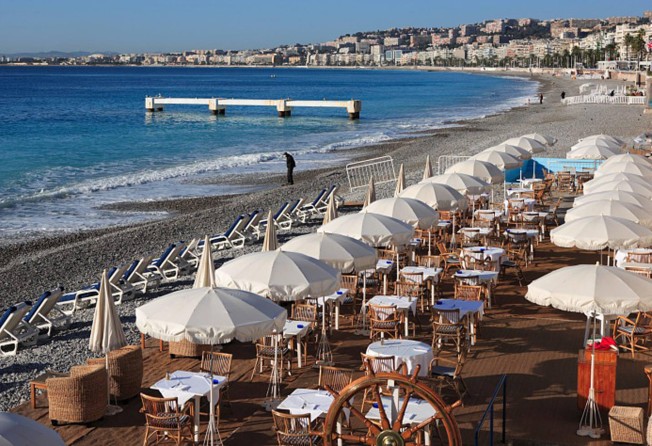Crackdown on private resorts on French Riviera angers owners
French crackdown will see private resorts that are decades old torn down, angering owners

Storm clouds are gathering over the private beach cafes of the French Riviera. But it is not the weather that is worrying the operators of the exclusive private beaches, the playgrounds of the international jet set.
They are up in arms because the government has decided to crack down on construction at private beach resorts.
Lawyer Genevieve Rebufat-Frilet, representing private beach managers, said authorities had begun serving notice that all buildings - even those with planning permission - must be demolished once their permit comes to an end.
"Some beaches are being recategorised as 'remarkable places', in which case no reconstruction is allowed," she said.
Rebufat-Frilet called it a witch hunt by the state.
"This is really a big worry for us. It's one thing to say no new construction, but completely another to order the destruction of property, particularly when it's been there for decades," she said.
Under legislation adopted in 1986, there is no such thing as a private beach, and the public must have unfettered access to the sea. However, the state has allowed exceptions for temporary beach installations.
The confrontation is the latest in a series of beach wars in France since 2006. A government decree that year said everything on a beach must be able to be dismantled and moved so the area could return to its "original state".
The Paloma Beach, costing €23 (HK$243) a day for a mattress, shower and locker, is one of the clubs targeted in St Jean Cap Ferrat. "I'm worried," said Jean-Claude Varini, issued with an official eviction notice for his club - built with a permit in 1947.
In St Tropez, the local council wants to cut the number of private beach clubs from 27 to 23 in 2018. Jean-Claude Moreu, who runs the Plage des Jumeaux, said he and colleagues were in limbo. "We don't know yet who will have to go. It depends on when each permit runs out," he said.
An opinion poll found last month that 91 per cent of French people supported the law, brought in to prevent the spread of the concrete beachfronts seen in Spain, as well as to preserve the natural environment.
But the legislation, allowing no housing closer than 100 metres to the sea and ensuring the public right of way, is often breached.
In Corsica, nationalists have taken matters into their own hands by burning beach shacks to the ground.
"It's a good law," said Benoit Hartmann, spokesman for France Nature Environment, a federation involved in court cases against offenders who have tried to build on the seafront.
"The way we see it, personal rights are not above collective rights. The law should be respected. Illegal constructions which become permanent should be stopped."